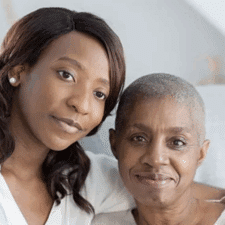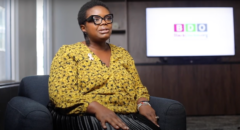
Did you know that every medical therapy we have to treat cancer starts with a clinical trial? Treatments like chemotherapy, radiation therapy, and surgical techniques and devices exist because of clinical trials.
There are four phases of clinical trials.
- Phase 1 – This is generally the first time a drug is being tested in humans and when we answer the question “Is it safe?”
- Phase 2 – This is when we test the effectiveness of a treatment and answer the question “How well does it work?”
- Phase 3 – This is when we compare a new treatment with the current standard of care and answer the question “Is it better?”
- Phase 4 – This is when we gather more information, examine long-term side effects, and answer the question “Did we miss anything?”
To run a clinical trial and make medical breakthroughs, researchers need human volunteers.
Have you thought about enrolling to be on a clinical trial, but aren’t sure what that really means?
Cedars-Sinai is breaking down commonly asked questions so you can feel confident considering a clinical trial.
“You have to be out of options to join a trial.”
No. Clinical trials are essentially another treatment option for patients to consider, and in many cases, patients are actually monitored more closely than they would be when receiving standard treatment.
We monitor and note how patients are responding to and tolerating the treatment and check in with them regularly for safety evaluations so we can ensure it is in the patient’s best interest to remain on a study.
In addition, as safety is our highest priority, we are required to uphold both local ethics board policies and federal regulations to ensure research volunteers are treated appropriately.
The short answer is no. Clinical trials can be for people who have not seen improvements from other treatments and are looking for new options, but they can also be for newly diagnosed patients, and there are even trials for healthy volunteers.
“If I join a trial, I’ll likely receive a placebo.”
Sometimes. But if a placebo is used, it will typically be in combination with whatever treatment is the best-known standard treatment.
There may be rare diseases that do not have a known standard treatment, but those patients are monitored extremely carefully and will only remain on the trial if their disease is stable or improving and they are tolerating the treatment well. Patients will be told if the study they are considering uses a placebo.
It’s a common misconception that you have to be out of options to join a trial. You can join a clinical trial when you’ve first been diagnosed with cancer. Many patients don’t know there is a wide range of options available when it comes to clinical trials.
“Clinical trials are costly.”
Your insurance will cover the “standard of care” costs, or the costs that would be associated with your cancer care whether participating in a trial or not.
Other study-specific costs should be covered by the trial administrator. Participants are responsible for their insurance co-pays and may also be responsible for getting to and from appointments, but some cancer trials do reimburse mileage and/or hotel.
You can withdraw from the trial at any time. That’s your legal right and it will not affect your care team’s opinion of you.
For more information on clinical trials, discover our Black Clinical Trials Resource Center.
To learn more about current cancer clinical trials at Cedars-Sinai, visit the Samuel Oschin Comprehensive Cancer Institute’s clinical research page.








